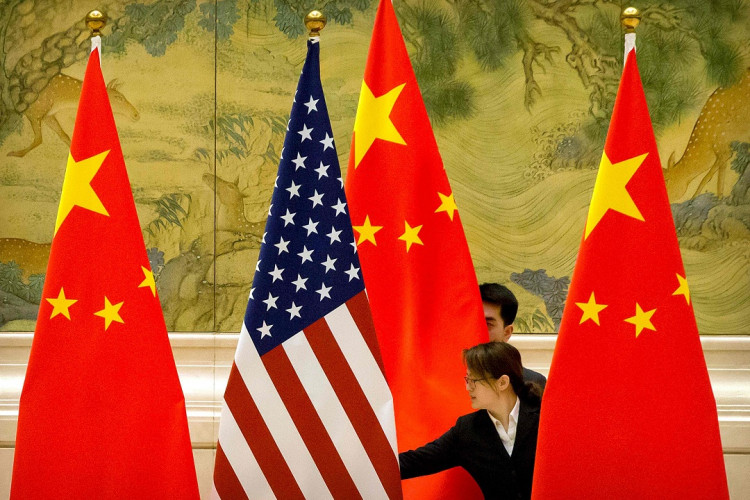China issued a sharp warning to the United States on Tuesday, vowing to "fight to the end" in an escalating trade war sparked by President Donald Trump's recent tariff hike on Chinese goods. The comments, made by Foreign Ministry spokesperson Lin Jian, marked one of the strongest statements from Beijing since Trump took office, raising concerns about further economic retaliation and diplomatic strain between the world's two largest economies.
"Exerting extreme pressure on China is the wrong target and the wrong calculation," Lin said in response to the U.S. decision to raise tariffs by 10%, bringing the total duty on Chinese imports to 20%. "If the U.S. has other intentions and insists on a tariff war, trade war, or any other war, China will fight to the end."
Lin's remarks were amplified by the Chinese embassy in the United States, which reposted the statement on social media platform X. "If war is what the U.S. wants, be it a tariff war, a trade war, or any other type of war, we're ready to fight till the end," the embassy wrote.
Pressed for clarification on what was meant by "any other war," Lin reiterated that Beijing would not back down if Washington continued to damage China's interests. "We advise the U.S. to put away its bullying face and return to the right track of dialogue and cooperation as soon as possible," he added.
The comments come amid heightened tensions between the two nations, with China objecting to Trump's claim that tariffs were necessary to curb the flow of fentanyl from China into the U.S. Chinese officials have dismissed the fentanyl issue as "an excuse" for imposing harsh trade restrictions. In response to the tariff increase, China has imposed duties of up to 15% on a range of U.S. agricultural products.
China's Ministry of Commerce struck a measured but firm tone on Thursday, stating that "coercion and threats will not work on China, nor will they scare China." Commerce Minister Wang Wentao added, "China's determination to defend its own interests is unswerving. If the American side goes further down this wrong path, we will fight to the end." However, Wang also stressed that Beijing remains open to negotiations, saying, "Our two sides can meet at an appropriate time, and our teams can also have communication as early as possible."
China has sought to counterbalance its reliance on U.S. trade by expanding global partnerships. Wang pointed out that China is the main trading partner for 140 countries and regions and has free trade agreements with more than 30 countries. "We do not put all our eggs in one basket," he said, signaling that Beijing would continue diversifying its trade relationships.
The heightened trade tensions coincide with China's annual "Two Sessions" political gathering, where officials discuss key economic and social policies. During the event, Finance Minister Lan Fo'an highlighted China's efforts to stabilize its economy amid global uncertainty, pledging more investment in social programs and economic stimulus measures. "We will make sure that every coin is well spent," he said.
Economic concerns remain significant for China, with a sluggish housing market, weak stock prices, and limited social welfare programs affecting consumer spending. Zheng Shanjie, head of China's National Development and Reform Commission, acknowledged that economic growth projections for 2025 are hovering between 4.6% and 4.8%, below the government's 5% target. He indicated that authorities are drafting a "specialized plan of action" to stimulate domestic demand and investment.






